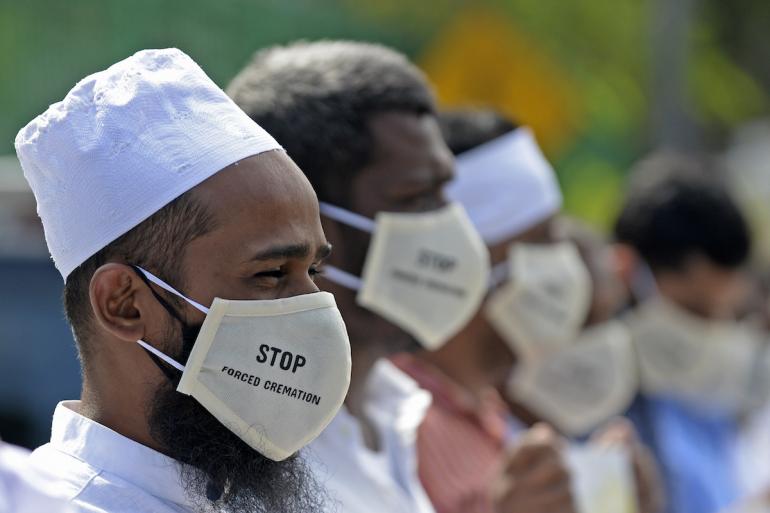Christian group hits Sri Lanka decision to cremate COVID-19 victims

A Christian human rights group as decried the decision of Sri Lanka to cremate all COVID-19 victims despite international appeals to allow Muslims to bury their dead in line with Islamic custom.
“The denial of basic burial rites only adds to the ongoing vilification of Muslims,” said Mervyn Thomas, president of the group Christian Solidarity Worldwide.
He noted that attacks on Muslims in the country have been taking place for many years “due to hatred and incitement propagated by far-right religious nationalists.”
“It is deeply worrying that, despite the recommendations from both the international community and the country’s own medical experts, the government of Sri Lanka has insisted on following a policy that further disenfranchises its Christian and Muslim communities,” said Thomas in a statement.
He said the government’s response “further demonstrates the lack of sensitivity to the families and communities who consider burial rites integral to their religious observation, customs, and memory.”
“We urge the government of Sri Lanka to reconsider its policies and allow its citizens the right to choose how they bury their loved ones, in adherence to international norms and guidelines,” said Thomas.
The Sri Lankan government has insisted that it will proceed with the cremation of victims who have died from COVID-19, effectively rejecting the recommendations of its own medical experts.
Human rights groups said the decision, which was announced on Jan. 8, downplayed the significance of religious customs regarding burials for Muslim and Christian citizens.
For Sri Lanka’s Muslim community, which accounts for nine percent of the population, burials are mandatory under Islamic law.
On March 31, 2020, however, the government issued guidelines stating that all who died of COVID-19 should be cremated.
The guidelines were introduced after authorities prevented the burial of the first Muslim who died because of the virus, despite protests from the family of the deceased and the Muslim community.
Government health officials maintained that “burials could contaminate ground drinking water.”
The World Health Organization earlier suggested that cremation of victims of COVID-19 is not necessary. The WHO’s September 2020 Interim Guidance advises on options for burials or cremation, noting that there is lack of evidence to support that the disease is communicable through burial.
In December, Sri Lanka’s Ministry of Health formed a panel comprising medical experts to make recommendations to the government. The panel recommended the inclusion of the options to cremate or bury those who died of COVID-19.
The College of Community of Physicians of Sri Lanka also published a position paper that states that virus transmission through a cadaver has not been proven.
Health Minister Pavithra Wanniarachchi, however, said the decision of the government “will not be changed based on religious, political or any other personal reason.”
Christians in the country have also rejected the government’s policy on cremation and even circulated a petition calling for an end to the policy.
There have also been cases where Christians have taken up legal cases opposing the policy, but these have been unsuccessful. - LiCAS.news
Radio Veritas Asia (RVA), a media platform of the Catholic Church, aims to share Christ. RVA started in 1969 as a continental Catholic radio station to serve Asian countries in their respective local language, thus earning the tag “the Voice of Asian Christianity.” Responding to the emerging context, RVA embraced media platforms to connect with the global Asian audience via its 21 language websites and various social media platforms.














